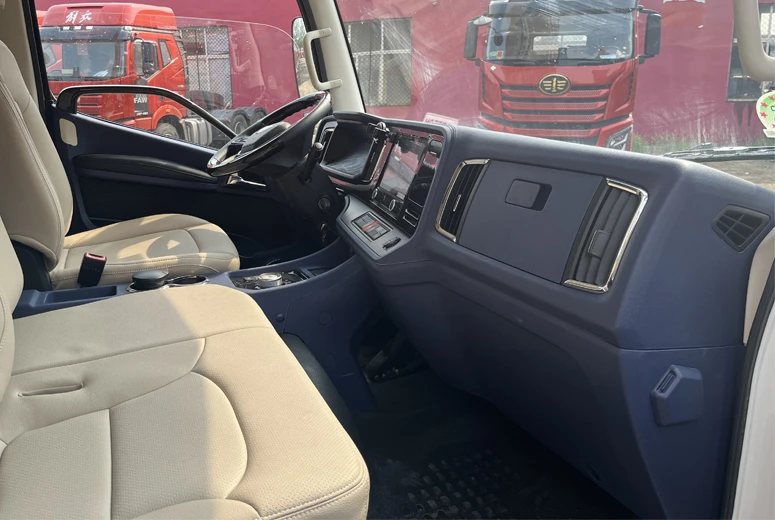Effective Strategies for Optimizing Engine Cooling Performance in Vehicles
The Importance of Engine Cooling Understanding the Basics
Engine cooling plays a crucial role in the overall performance and longevity of a vehicle. As engines operate, they generate a significant amount of heat due to the combustion of fuel. Without a proper cooling system, this heat could quickly lead to overheating, resulting in severe damage to engine components and ultimately, costly repairs. Understanding how engine cooling works and its importance can help vehicle owners maintain their cars effectively.
The Basics of Engine Cooling
The primary function of the engine cooling system is to regulate the engine temperature by dissipating excess heat. The system typically consists of a radiator, water pump, thermostat, hoses, and a cooling fan. Coolant, usually a mixture of water and antifreeze, circulates through the engine, absorbing heat. The heated coolant then flows to the radiator, where the heat is released into the air, allowing the coolant to cool down before it re-enters the engine to continue the cycle.
Key Components of Engine Cooling
1. Radiator The radiator is perhaps the most recognizable component of the cooling system. It consists of a series of tubes and fins that enable efficient heat exchange. As the hot coolant passes through the radiator, air flowing through the fins cools it down.
2. Water Pump The water pump is responsible for circulating the coolant throughout the engine and the cooling system. A malfunctioning water pump can lead to inadequate coolant flow, resulting in hot spots and potential overheating.
3. Thermostat This device plays a vital role in maintaining optimal engine temperature. The thermostat regulates the flow of coolant based on the engine’s temperature. If the engine is too cold, the thermostat remains closed, preventing coolant from entering the radiator. Conversely, when the engine reaches the desired temperature, the thermostat opens, allowing coolant to flow freely.
engine cooling

4. Cooling Fan When the vehicle is stationary or moving slowly, the cooling fan aids in drawing air through the radiator. This is particularly important in stop-and-go traffic or during heavy loads, where airflow may be insufficient for adequate cooling.
The Consequences of Overheating
When an engine overheats, it can lead to severe consequences. Overheating can warp cylinder heads, blow head gaskets, and even cause complete engine failure. Regular maintenance, including checking coolant levels, inspecting hoses for leaks, and ensuring the radiator is clean and functional, can prevent such catastrophic failures.
Preventive Measures
To ensure the engine cooling system functions correctly, vehicle owners should adopt a proactive approach. Regularly checking the coolant level and quality is essential. Additionally, flushing the cooling system according to the manufacturer’s recommendations can help remove any sediment or mineral buildup that could impede coolant flow.
It’s also critical to monitor the temperature gauge on the dashboard. If the gauge indicates an unusually high temperature, it’s advisable to pull over and let the engine cool down before investigating the issue. Ignoring this warning can lead to irreparable damage.
Conclusion
In conclusion, engine cooling is a vital aspect of vehicle maintenance that directly affects performance and reliability. Understanding the components and functions of the cooling system can empower vehicle owners to take proactive steps in keeping their engines running smoothly. Regular inspections and maintenance practices can prevent overheating, ensure optimal performance, and save money on repairs in the long run. As engines continue to evolve and become more efficient, the importance of an effective cooling system remains as crucial as ever.
-
SINOTRUK HOWO 84 Electric Dump Truck for Eco-Friendly Heavy HaulingNewsJul.26,2025
-
The Fast 16-Gear Manual Transmission Assembly for Heavy TrucksNewsJul.25,2025
-
Mercedes Benz Actros 1848 42 Tractor Truck for Sale - Reliable PerformanceNewsJul.24,2025
-
High-Quality Water Pump Assembly for Sinotruk Trucks – Durable & ReliableNewsJul.23,2025
-
Premium Truck Engine Antifreeze Coolant Fluid for Heavy Duty VehiclesNewsJul.22,2025
-
FOTON View G7 Mini Bus: Affordable & Spacious TransportNewsJul.22,2025
Popular products

























